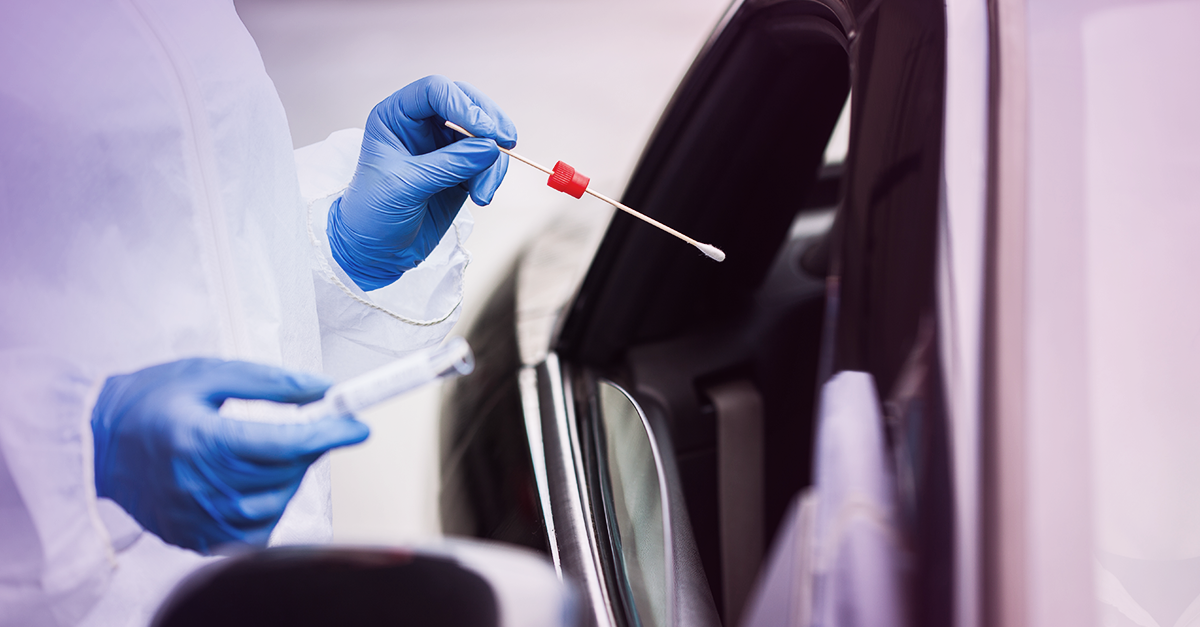The early days of the COVID-19 pandemic presented a host of new challenges for proper coding and billing. During this time, quick changes led to many innocent errors, but also created an opening for bad actors looking to exploit the pandemic for their own profit. Among them, COVID-19 drive-through tests, a life-saving measure for diagnosing and advising the public, was too often used as a nefarious tool for profit. While this type of testing is no longer prevalent today, many health plans have look-back periods stretching as far back as three years, and special investigations units (SIUs) continue to investigate data related to such potential schemes.
In this blog, we’ll explore how one provider was flagged earlier in 2023 for possible fraud, waste, and abuse (FWA) activity related to COVID-19 drive-through tests.
Flagging suspicious activity
Within the claim editing data analysis process, a provider was flagged for excessive high-level evaluation and management (E&M) services at COVID-19 drive-through testing sites, as well as inappropriate places of service (POS) usage and “impossible days.”
Since E&M services are considered cognitive and not procedural, taking a COVID-19 test is a clear mismatch for the codes submitted. Among the suspicious POS codes, the provider billed POS 11, an office code, for COVID-19 drive-through services and POS 15, a mobile site code, for E&M services. As for the impossible days—a scenario in which more services are billed than is possible for the given amount of time—the provider billed over 30 dates of service for 50 or more patients utilizing high-level E&M codes.
Digging deeper
A Cotiviti investigator reviewed claims data for the provider’s 24-month billing history, which revealed potential excessive billing and inappropriate services. The claims data identified one provider that billed 60% of claims for high-level services. The provider was flagged as an egregious outlier in terms of excessive high-level services billed for COVID-19 drive-through testing sites as well as utilizing POS 15 with E&M services.
The investigator conducted research surrounding COVID-19 testing drive-through sites and identified that according to AAPC, CPT 99211 should be utilized for COVID-19 symptom and exposure assessment and specimen collection provided by clinical staff to the supervising physician or nonphysician practitioner’s (NPP) services. The investigator also researched the provider’s website, which advertised rapid COVID-19 testing to patients from their vehicle.
Assessing the damage
Cotiviti’s medical review team completed an initial medical record review on 46 sampled claim lines and identified an overall error rate of 100% due to insufficient and/or missing documentation, flagging the following issues:
- Documentation did not support the level of E&M services billed
- Documentation did not include test results to support the COVID tests performed
- Documentation did not support the POS utilized
- Documentation indicated the possible cloning of records
The extrapolated overpayment for the initial review totaled more than $1.4 million.
While COVID-19 drive-through testing is no longer as prevalent, COVID-related claims continue to contribute to ongoing cases of FWA. As demonstrated by this investigation, staying vigilant against suspicious activity by using systems that can help flag outliers early can help prevent overpayments or flag them as quickly as possible, increasing the likelihood of recovery.







